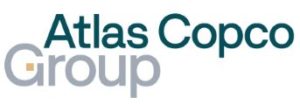Waste-to-energy at IFAT ENTSORGA 2010: Energy Instead of Dumping
Waste bunkers worldwide are filling up and a range of factors are the cause: a rising population and increasing affluence are bringing with them an increase in the overall amount of waste; the withdrawal from waste dumping, partly supported by governments; and volatile energy prices.
A differentiated picture of the international markets for WTE plants is shown in a range of recent reports by management consultants Frost & Sullivan. They show that the key markets for WTE incineration are in Europe, the Asian-Pacific region and North America.
According to these reports, Europe is the largest of these, with a market worth 1,800 million US dollars in 2007. Analysts agree that it is likely to retain this leading position in the coming years too. Among the European countries, Britain is regarded as having particularly high growth potential.
The second-largest market, with a volume of 380 million US dollars is North America. Frost & Sullivan believe, however, that this region will be overtaken in the next few years by the Asian-Pacific states. Starting with a market volume of 320 million dollars in 2007, growth rates of up to ten percent should be possible here through until 2013. As in many areas of the world economy, China will be an engine for development. Driven by the rapid rise in its quantities of waste, the People´s Republic is aiming to direct around 30 percent of its waste into energy processing by 2030. The experts at Frost & Sullivan have calculated that there is potential in China to build WTE plant capable of coping with up to a further 50 million tonnes of waste by 2020.
The world´s leading trade fair for water, sewage, waste and raw materials management, IFAT ENTSORGA, which takes place from 13 to 17 September 2010 in Munich, offers a unique opportunity to gather information on the German, European and worldwide markets, trends and technologies – all in one place at the same time. This traditional industry gathering attracts waste processors, equipment manufacturers, planners, service-providers, suppliers, operators, government authorities, associations, research institutes and industry consultants.
This year a large joint stand is being taken by the Interessengemeinschaft der Thermischen Abfallbehandlungsanlagen in Deutschland (ITAD, Würzburg) together with its European umbrella organisation CEWEP (Confederation of European Waste-to-Energy Plants, Brussels) and their respective member companies. "Even though in Germany the market in thermal treatment of waste is well developed, we have much still to do," stressed ITAD Managing Director Carsten Spohn.
In Germany the area of generating electrical energy from waste has in many places been more or less fully optimised both technically and economically. "In heat extraction, however, there is still tremendous potential for expansion," says Spohn.
In order to better exploit this in future, ITAD believes that, for example, more use could be made of district heating or cooling networks, to distribute thermal and cooling energy from WTE plants. In places where no connection to such networks can be set up, it would be important to locate as many energy-intensive industries as possible in the area immediately around the plant. One way to promote this, says Spohn, is to create corresponding incentives at local and national level. These and other themes concerning waste technology and waste policies will be discussed by ITAD and CEWEP at IFAT ENTSORGA, both at their joint stand and in a day of congress.
Source: Messe München GmbH



